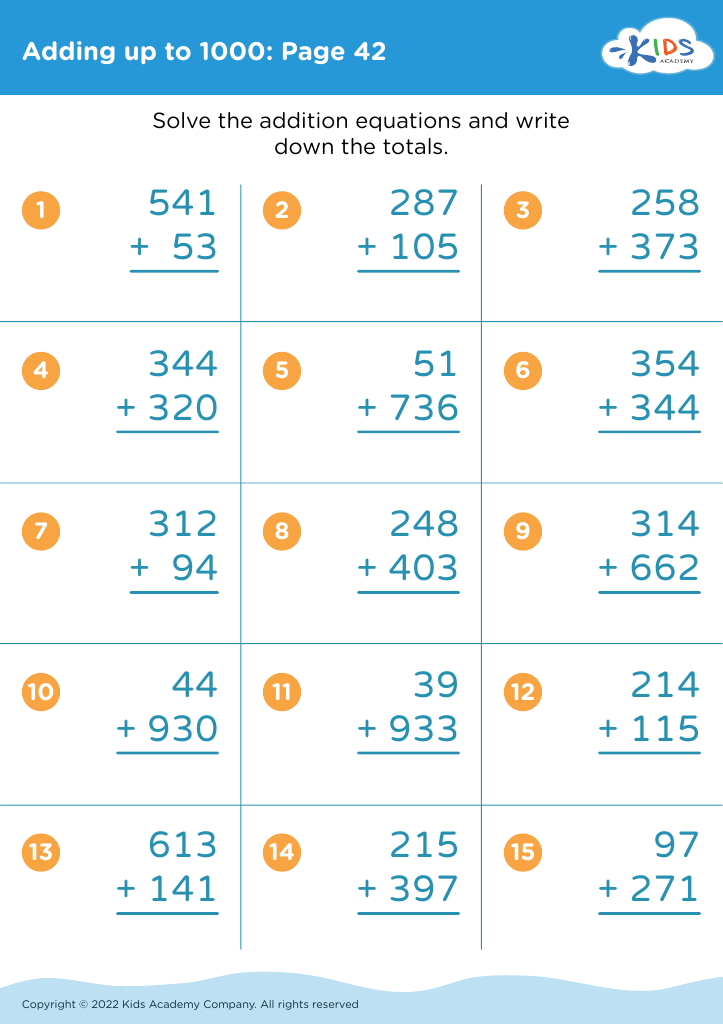Counting skills, particularly adding up to 1,000 for children aged 8-9, are crucial in their cognitive and academic development. During this age, children transition from concrete to more abstract numerical concepts. Mastering addition up to 1,000 not only boosts their mathematical proficiency but also enhances problem-solving skills applicable in real-life situations.
Parents and teachers should care because strong counting and addition skills lay the foundation for more complex mathematical concepts that will be tackled in later grades, such as multiplication and division. Additionally, children develop confidence in their abilities when they master counting skills, fostering a positive attitude toward mathematics overall.
Moreover, understanding addition aids in developing critical thinking skills. When children learn to visualize numbers and comprehend their relationships, they become better equipped to analyze and solve everyday problems, from budgeting allowances to measuring ingredients in cooking.
Lastly, proficiency with numbers promotes better engagement in classroom activities and can lead to improved academic performance. In an increasingly data-driven world, nurturing these foundational skills ensures that children are prepared for future educational challenges and sets the stage for lifelong learning success. Hence, investment in counting skills is an investment in a child's academic journey and overall development.













